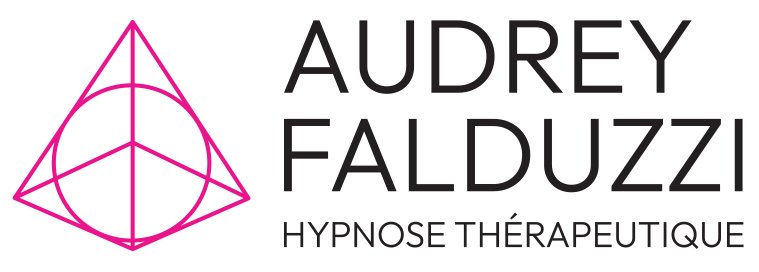
Hypnosis and anxiety.
Overcome your fears and anxiety.
Anxiety is one of the most common challenges of our time.
Anxiety affects millions of people every year. The World Health Organization (WHO) considers anxiety disorders the most common mental illness. About 20% of adults aged 18 to 65 will experience an anxiety disorder at some point in their lives.
Social pressures push us to meet standards of perfection and achievements that are often impossible to achieve: "Succeeding" professionally, being financially comfortable, embodying the "ideal parent", the "good son" or the "good daughter", the "good husband" or "good wife", and so on.
Such expectations can eventually shake our self-perception and self-esteem. They become inner voices that, rather than inspiring us, criticize and judge us, creating a constant fear of being judged by others and not measuring up.
The accumulation of these pressures can lead to a state of hypervigilance that can manifest as panic attacks, irrational fears, social anxiety, or phobias.
Anxiety can also express itself in children in various forms: sleep disorders, separation difficulties or school-related fears. In such cases, hypnosis for children offers a gentle and playful approach, adapted to their imagination and sensitivity.
IN A WORLD THAT VALUES SUCCESS AND PERFORMANCE, SOCIETY'S EXPECTATIONS CAN OFTEN FEEL OVERWHELMING.
Hypervigilance: at the heart of anxiety
The common thread in all forms of anxiety is hyper-vigilance. We react to the world as if a danger was imminent, as if we were facing a lion and our life depended on it.
Physiological reactions: racing heart, difficulty breathing, trembling, palpitations, tightness in the chest, sweaty hands, knots in the stomach, nausea...
Our body releases stress hormones to help us react quickly, pushing us into one of 3 possible reactions to danger: fight, flight or freeze.
This is our reptilian brain in action. These reactions can seem irrational and illogical.
However, in most cases - whether you're imagining the worst if your partner comes home late or find yourself face to face with a spider - there is no real danger.
You are not facing a lion. You are fully aware of that, but you can't help it, it's like a reflex. It feels beyond your control. You are trapped in this state of excessive vigilance.
For reasons you may not fully understand, your unconscious mind puts you into this hypervigilant state to protect you from what it perceives as a threat to your survival.
Hypnotherapy, by reconnecting you with your unconscious mind, allows you to go back to the source of this hypervigilance, neutralize it and free yourself from automatic anxiety mechanisms.
To reinforce this sense of calm, some people choose to complement their sessions with a Chi Nei Tsang massage, a gentle abdominal practice that helps release tension and buried emotions.
The many faces of anxiety
-
Whether it's about a specific subject - your relationship, your finances or your work - or whether the anxiety affects several areas of your life, you are in a state of constant worry.
▼ You always anticipate the worst-case scenarios, even in ordinary situations.
▼ Every small decision feels crucial, and you spend hours overthinking every possible option, afraid of making the wrong choice.
▼ You feel trapped in your thoughts and ruminations, unable to find the "pause" button.
▼ The slightest delay or uncertainty (an unanswered message, a missed call) can throw you into a spiral of anxious assumptions.
▼ You have trouble falling asleep and/or wake up in the middle of the night with intrusive thoughts, leaving you exhausted in the morning.
▼ Even in moments of rest, an inner voice keeps whispering worries.
-
Anxiety and panic attacks often appear unexpectedly and can be terrifying. They often occur anywhere at any time, and are therefore difficult to anticipate. They bring intense physical and emotional symptoms. You feel completely out of control.
▼ Your heart start racing for no apparent reason, with a feeling of tightness in your chest, as if you were running out of air.
▼ In the middle of an attack, you feel like you're about to faint or lose control, which only intensifies your fear.
▼ The fear of having another attack makes you avoid certain places (stores, public transport...) or even limit your outings.
▼ You wake up in the middle of the night, feeling panicked, with the sensation that something terrible is about to happen.
▼ Sometimes you feel like you're "going crazy" or losing touch with reality.
-
Social anxiety, also called social phobia, shows up as an intense fear of being judged, embarrassed or rejected in social situations.
You anticipate certain interactions - a presentation, a meeting, a simple conversation - as potential moments of discomfort. You feel uncomfortable in public, and sometimes even with people you know well. You feel constantly observed, criticized or evaluated.
▼ Before a meeting or a social event, you feel intense stress and you start worrying about what others might think of you.
▼ In social situations, you may blush, sweat or tremble, and you worry others will notice your discomfort.
▼ Even in informal contexts, like a dinner, a party or a celebration, you find it difficult to engage in conversation, because you are afraid of saying something inappropriate or awkward.
▼ After an interaction, you replay every detail in your mind, worrying that you've said something "wrong" or been misinterpreted.
▼ Even simple things, like answering the phone or asking for something in a shop, can become a source of anxiety.
-
A specific phobia is an irrational and intense fear triggered by a particular object or situation.
Whether it's a fear of flying, elevators, needles, animals, insects or storms, the fear is so strong that you will do anything to avoid what scares you. Even if you are aware your fear is disproportionate, it takes control.
▼ You avoid elevators because you are afraid of getting stuck or running out of air.
▼ You avoid flying or feel intense anxiety as soon as you board a plane.
▼ At the sight of a spider, even a very small one, your heart starts racing and you feel an strong urge to run away.
▼ You delay important medical appointments because the sight of needles triggers overwhelming fear.
▼ When you see a dog, even if it's calm and on a leash, you feel a sudden wave of panic, as if it could attack you without warning.
-
OCD shows up as intrusive, repetitive thoughts (obsessions) and behaviors (compulsions)that you feel obliged to perform in order to relieve your anxiety.
Over time, these rituals become essential to cope with the tension and start taking up a significant part of your daily life, disrupting your activities and relationships.
▼ You check several times doors and windows to make sure they are properly closed.
▼ You wash your hands over and over again fearing germs and contamination.
▼ You go back home to check that the lights or appliances are turned off, even after already checking them carefully.
▼ Before doing something, you feel the need to count or repeat actions in a specific order, with the fear that something bad will happen if you don't.
▼ When arranging objects, they have to be symmetrical or perfectly aligned. You feel intense anxiety if anything is out of place.
▼ You feel an intense need to clean constantly, making sure every surface is spotless. The slightest dust or mess creates immediate discomfort.
hypnosis can help you switch off THE HYPERVIGILANCE ALARM
When your mind senses danger, even when there is none, your subconscious reacts like an over-sensitive smoke detector that goes off at the slightest signal.
Through hypnosis, by reconnecting with your unconscious mind, we will deactivate and reprogram this permanent alarm. You will then be able to tell the difference between situations that truly require a response and those that are completely harmless.
By going to the source of your blockages, hypnosis helps you to let go, free yourself from your anxieties, rebuild a positive self-image, and regain self-confidence.
You start sleeping peacefully again and approach each day with calm and confidence. Anxious thoughts no longer take over your mind.
YOU FULLY ENJOY THE PRESENT MOMENT AND REDISCOVER THE PLEASURE OF LIVING WITHOUT CONSTANT "WHAT IFS" OR WORST-CASE SCENARIOS.
frequently asked questions about hypnosis & anxiety
-
With hypnotherapy, a phobia can be treated in 1 to 3 sessions.
Of course, each person is unique, and results may vary depending on your responsiveness and the depth of the phobia. Together, we will work at a pace that suits you to gradually free you from this fear.
-
Although it takes between 5 and 8 sessions on average to achieve lasting freedom from anxiety, you'll feel a relief from your symptoms from the very first sessions. Like peeling an onion, therapeutic work removes the layers blocking access to our resources.
I will guide you to recognize and track the positive effects of each session over time.
When you've been wearing the "coat" of anxiety for a long time, it can take a little while to notice it lightening and finally disappearing.
-
Yes, hypnotherapy is a flexible approach that makes it possible to address several types of anxiety in a single therapeutic course.
We can work on different manifestations of anxiety, such as specific phobias and social anxiety, adapting each session to your priorities.
This will enable you to progress in a holistic way, taking into account all your needs.


